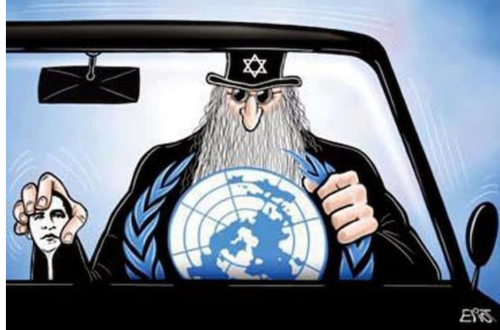This is a guest post by Darren Cohen
The results from the Venezuelan elections confirmed something fascinating: a global pattern is emerging. The extremely close nature of the elections on Sunday resulted in victory for Hugo Chavez’s handpicked heir to the throne and former foreign minister, Nicolás Maduro. Many expected Maduro to win given the immense popularity of Hugo Chavez, whose endorsement was probably even better than one from the Pope. Indeed, the truly astonishing thing was just how small the margin turned out to be between Maduro, the socialist who claims he will continue the so called Bolivarian Revolution began by Chavez and Henrique Capriles, the Catholic grandson of Jewish Holocaust survivors, who sought to save the country from collapse given the high inflation and rampant crime that currently affect it, among other things. Maduro won with just over 50% of the vote while Capriles lost with 49%.
This is the continuation of a pattern that has been developing on a global scale, although of course with great nuances. In the United States, Barack Obama triumphed in the presidential election with just over 51% of the vote, compared with Mitt Romney’s ironic 47%, (given his comment that 47% of Americans pay no income tax). Elsewhere, in the 2012 French elections, self-proclaimed socialist Francoise Hollande was victorious in a close race with 51% of the vote while the more conservative Nicolas Sarkozy just missed out on the opportunity to extend his presidency with his 48% not being sufficient to secure re-election. A final example, in the Israeli elections in January 2013, most analysts declared that 61 seats went to the Israeli Right and Religious Parties while 59 seats went to the Israel Centre, Left and Arab parties. By no means as clear cut as some of the other examples, it was yet another indicator of a trend: the world is rapidly being divided between two political blocs.
The trend that is occurring is that, in many countries there are now two truly entrenched, well defined political visions, two distinct set of ideas about the future and fabric of their respective societies and the values and ideals that underpin such visions. There is a wholesale division at the core of these societies. It is no accident that in the aforementioned electoral examples, the electorate was offered two very distinct packages. As President Obama continuously reiterated on his campaign trail, “this election is a choice between two very different visions for our future.”
Whereas in the past, elections throughout the world have either been landslide victories, choices between a wide variety of political ideologies and visions or simply two party systems where the two parties are difficult to distinguish between, today’s political landscape seems to indicate a change; a world where we have two very concrete notions about what is best for the future of society and the economy. The ideas about how to create growth and jobs, maintain security and sovereignty and to ensure a sustainable future for the coming generations are all polarised.
There are other recent manifestations of this phenomenon. The so called Arab Spring, whether successful or not, at least demonstrated that there is not merely one narrative in the Arab World, but a whole plethora of them. Indeed, in many countries in the Arab and Muslim world, there is a clear division in society between those who want to see a human rights, liberal, equality based approach and those who seek Islamic Law and the application of Muslim values. Indeed, in Egypt, while not exactly representing this division, the election victory of the Muslim Brotherhood and Mohammed Mursi was 51%-48% against Ahmed Shafik, who represented the values of Mubarak’s old regime. Another very clear choice between two sets of visions.
The common feature of all these elections, whatever it is the victorious party is offering, be it the continuation of ‘21st century socialism’ (Venezuela), a new state based on Muslim values (Egypt), a fairer distribution of the burden of responsibility (Israel), or a complete rejection of the austerity paradigm (France), ultimately they are all offering a change, a hope for a better future, a way of saying – it doesn’t need to be like this; we don’t need to continue with the status quo.
One possible explanation for this monumental political schism is just that very notion, the status quo doesn’t work. Many have come to this realisation in light of the still unresolved 2008 economic crisis where years of greed, short term fixes and extreme lack of regulation came to light. People are searching for an alternative and the elections of the last year are starting to prove it.


